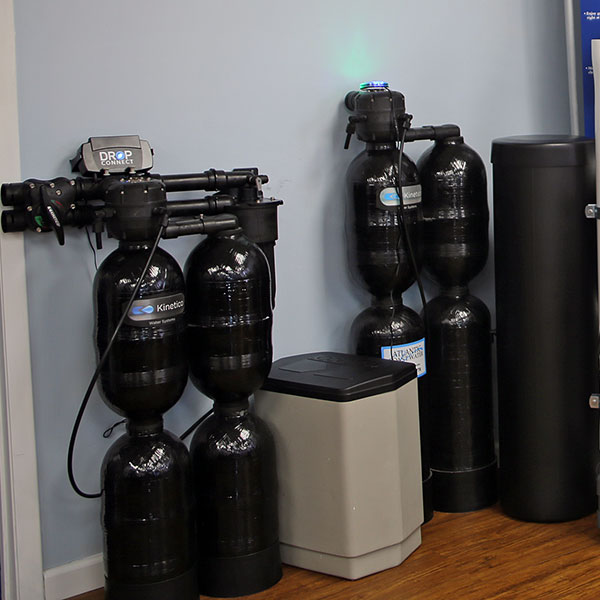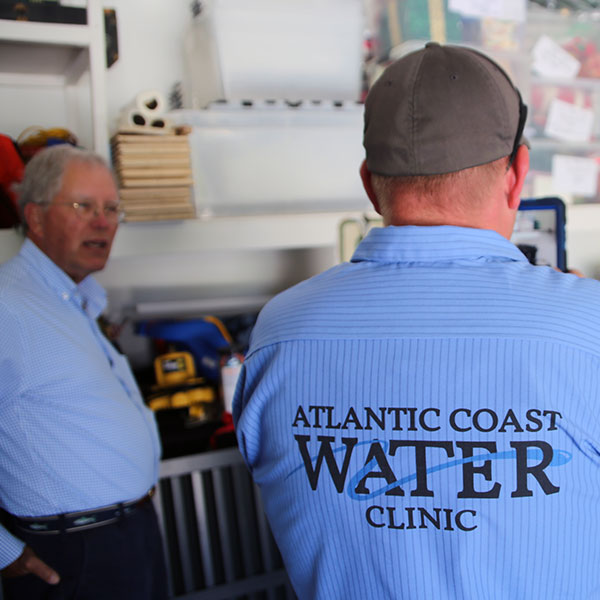Guide to Drinking Water Systems
Many American homeowners aren’t satisfied with the drinking water that comes out of their faucets, and they resort to spending hundreds of dollars on bottled water or water delivery.
 It makes no sense to pay for bottled and municipal water, and the amount of plastic going into our landfills and oceans is detrimental to the environment.
It makes no sense to pay for bottled and municipal water, and the amount of plastic going into our landfills and oceans is detrimental to the environment.
The solution for many people is to invest in a water treatment system, but with so many options, it isn’t easy to know which one to choose.
Atlantic Coast Water Clinic looks at the most popular drinking water systems, how they work, and what benefits they bring to the table.
Reverse Osmosis Water Treatment Systems
Reverse osmosis water treatment systems are among the most popular among homeowners because they’re effective and easy to maintain.
Reverse osmosis works by forcing water under pressure through a semipermeable membrane to remove dissolved materials molecule by molecule so clean water comes through the other side.
The filtered water flows into a storage tank, and the contaminated materials go down the drain.
Many people choose reverse osmosis because of its ability to remove contaminants that make the water taste bad and cause health issues.
Reverse osmosis removes contaminants such as:
- Lead
- Arsenic
- Fluoride
- Pesticides
- Chlorine
- Barium
- Cyanide
- Sodium
- Ammonia
- Mercury
The primary benefit of installing a reverse osmosis water filter is getting better tasting, healthier water. The system removes 95-99% of the dissolved solids that cause water to taste and smell bad.
Many restaurants use reverse osmosis systems because removing these impurities makes food, coffee, tea, soup, and other things made with water taste better.
If you’re one of those people that dislikes the smell and taste of their city water, or you don’t trust that it’s safe to drink, a reverse osmosis water filter is an excellent choice.
Carbon Block Water Filters
Another popular water filter for homeowners is the carbon block filter because you can use it as a standalone system or integrate it with reverse osmosis or UV filters.
The science behind carbon block water filters has been around since the ancient Egyptians used charcoal to purify drinking water, and it’s one of the most effective methods to get clean, healthy drinking water.
Carbon block filters are porous, absorbing contaminants like chlorine, heavy metals, asbestos, cysts, lead, volatile organic compounds, and some pesticides from the water.
Unlike some other water filtration methods, carbon block filters don’t remove naturally occurring water nutrients and healthy salts and minerals.
Other advantages of choosing a carbon block filter are that they’re easy to maintain, inexpensive, and simple to replace. Also, these filters don’t rely on electricity or water pressure to work; gravity does all the work.
Ultraviolet Filters
Ultraviolet or UV purification systems effectively disinfect the water by killing waterborne bacteria, viruses, and protozoan cysts.
Although there are chemical methods to disinfect water, UV filters rely on physical disinfection, making them healthier for you and making a cleaner environment.
UV water purifiers work by exposing living organisms like bacteria to ultraviolet light rays. The radiation from the UV light kills these organisms and prevents them from spreading through your drinking water.
UV purifiers are effective at removing:
- Cryptosporidium
- Giardia
- Dysentery bacilli
- Salmonella
- Mycobacterium tuberculosis
- Streptococcus
- E. Coli
- Hepatitis B
- Cholera
- Algae
- Fungi
- And some viruses
While UV filters are highly effective at removing these pathogens, they don’t remove particles that cause the foul taste and odors some people experience with their water supply.
Another downside to UV purifiers is the expense, as they’re not nearly as cost-effective as the other methods mentioned.
Additional Benefits to Installing a Drinking Water System
Many homeowners opt to install a water filtration system to get clean, healthy water. However, there are many other benefits to consider.
Saves Money
The average American household spends approximately $300 per year on bottled water, so installing a water filter practically pays for itself.
Reduces Plumbing Issues
If you live in an area where the water has a high mineral content (known as hard water), then you’re no doubt familiar with the problems caused by them.
Mineral and scale buildup in pipes and appliances causes them to clog and fail more quickly than they should. Plus, reducing the minerals means less time cleaning your faucets and fixtures.
Most water filtration systems remove these minerals, protecting your plumbing and appliances from mineral damage.
Improves Skin
Soap isn’t effective in hard water, and it leaves behind soap scum on your skin, which can cause drying and irritation. Removing these minerals leaves your skin softer and well-moisturized, so there’s less itching and irritation.
Which System is Right For You?
With the abundance of water filters to choose from, knowing which system you should get for your home is challenging.
The way to determine which water filter to install is to ask yourself what you’re trying to accomplish.
If you want better tasting and smelling water, a reverse osmosis filter is a good choice.
If you’re worried that your water is unsafe because of viruses, bacteria, and other pathogens, the UV purifier is the way to go.
If you don’t have a lot to spend but still want great-tasting water, maybe the carbon block filter is right for you.
 About Us
About Us
Atlantic Coast Water Clinic has been the trusted water treatment company throughout the Treasure Coast since 1976.
What sets us apart from other companies in this space is that we stand behind our products with the most comprehensive warranty coverage in the industry.
When you buy from us, you can rest assured you’re getting a water treatment solution that will last.
For a free analysis and quote from Atlantic Coast Water Clinic or to book an appointment, call us at 772-283-4767 or fill out our online form.


 772-283-4767
772-283-4767